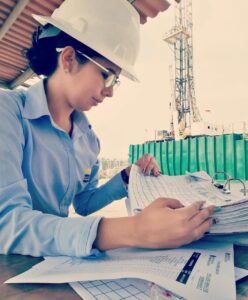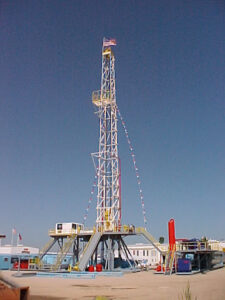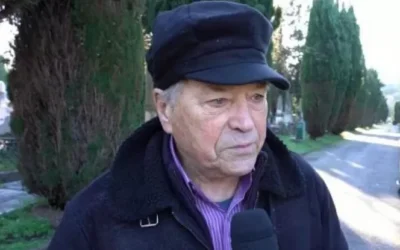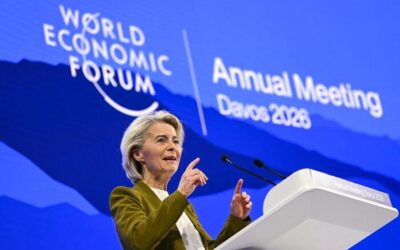Ecomony

The race is on to get a contract for drilling rigs in the Indonesian sea
Andra Martinez hope to get a contract for offshore drilling platform for 12 million u.s. from Indonesia Government
Indonesia is a country rich in oil fields. There are many international companies exploiting the crude oil and others are looking for orders for offshore drilling platforms. Andra Martinez, chairman of the anonymous company together with a team of 7 experts has been working to get an oil drilling contract from the Indonesian government.A project that has taken Martinez over two years.

In the meantime, Chevron left the country precisely from Indonesia, selling a project to Eni.
And it’s not the only major company hat wants to do it
In August the news spread that the US oil company Chevron was selling its stake of 62% to Italian giant ENI.
The IDD isn’t the only project Chevron wants to break away from. In September, the company signed an agreement with the Indonesian government to speed up investments in the Rokan oil field (185,000 barrels a day in January), but from next August the management of the block will be transferred to Pertamina, the state-owned oil company of Indonesia. : Chevron has operated there since 1971.
Chevron is not the only oil major that is leaving the country. Royal Dutch Shell is also trying to sell its 35 percent stake in the Masela gas project: production was supposed to start in 2027, but it seems the delay is “inevitable,” according to the Nikkei.
According to Andrew Harwood, an analyst for the Asia-Pacific region Wood Mackenzie, the coronavirus pandemic is only “exacerbating or accelerating the situation in Indonesia”. The disengagement of large foreign companies is in fact “a phenomenon we have been witnessing for the last three years”.

Some analysts blame the Indonesian authorities and their “nationalism of resources” for this: the tendency, that is, that pushes governments to place the exploitation of natural resources – such as mining concessions and oil fields – in the hands of indigenous companies.
Already in 2018, for example, Pertamina had taken control of the Mahakam gas field from France’s Total.
This nationalistic approach, however, could backfire on Jakarta, as the withdrawal of foreign investors jeopardizes the objectives of increasing oil reserves and increasing output.
Crude oil production is around 717,000 barrels per day this year, compared to 950,000 in 2009. From 2009 to 2019, however, oil consumption grew from 1.3 million barrels per day to 1.7 million.
Natural gas production manages to meet domestic needs, but from 2009 to 2019 it dropped from 78 billion cubic meters to 67.5. In 2005, Indonesia was the largest exporter of liquefied natural gas; last year it was the ninth.
The decline in oil and gas production is having an impact on the state’s finances. In 2018, the two sources contributed 7.4 percent to state revenues, up from 14 percent in 2014 and 20 percent in the 2000s, as reconstructed by a PwC report.
The slowness of the authorization processes also discourages investors. Going from gas discovery to production can take a decade or more, writes the Nikkei. In fact, investments in Indonesia are decreasing: in 2014 they amounted to 20.4 billion, while last year only 12.1 billion, of which only 1 percent went to exploration activities.
Less investment has meant fewer discoveries, and therefore a decline in oil reserves. In 1999, Indonesian reserves amounted to 5.2 billion barrels, up from 2.5 billion recorded last year. In the same period, natural gas reserves went from 2.7 trillion cubic meters to 1.4.

But while some international companies have decided to leave the country, there are drilling companies that rely heavily on the Indonesian government to purchase offshore drilling equipment.
One of these companies is headed by Andra Martinez a young Colombian who graduated in engineering from the University of British Columbia, in Canada.
Before becoming Chairman & CEO of the company specializing in offshore drilling equipment, Miss Andra Martinez, worked with Massy Energy Colombia in Puerto Boyacá.
After two years in Jakarta, finally Martinez, will be heard by industry experts on how she intends to drill the crude below sea level.
The drill rig digs a hole through the earth and rock to add the crude oil deposit. The mole is pushed down by the weight of heavy metal pipes that pump the drilling fluid called “mud”.
This fluid can only be water, water with air bubbles or water with polymers. Depending on the type of rig, offshore rigs are rated to drill water depths from 80 feet to 12,000 feet. The maximum water depth a jackup can drill is 550 feet, and many newer units have a nominal drill depth of 35,000 feet. The drilling contract that the company managed by Andra Martinez intends to sell to the government of Indonesia has an estimated value of approximately 12 million US dollars.

One of these companies operating the type of equipment that engineer Andra Martinez intends to sell to the Indonesian government is also used by the Italian oil company Eni which successfully drilled and tested the Maha 2 appraisal well, located in the West Ganal block in offshore of Kalimantan, Indonesia. The camp is located 16 km southeast of Jangkrik FPU, operated by Eni.
The well was drilled at a depth of 2,970 meters into a depth of 1,115 meters and encountered 43 meters of net gas-containing sands with excellent reservoir characteristics at Pliocene levels.
The company also added that the production test, limited by surface plants, recorded excellent deliverability of the gas from the field flowing at 34 mmscfd. Through testing and coring of the field, important data was collected to carry out all the studies necessary for the preparation of a field development plan for the Maha field, where the drilling of two other appraisal wells is planned.
The development plan will most likely include subsea completion and a link with Jangkrik FPU. The proximity of the Maha field to the existing infrastructures will allow to maximize synergies and reduce the time and costs of future submarine developments.

Eni is the operator of West Ganal Block through its affiliate Eni West Ganal Limited which holds a 40% stake, while Neptune and P.T. Pertamina Hulu West Ganal holds a 30% stake each.
The successful exploration campaign conducted by Eni in the deep waters of East Kalimantan has already delivered the production projects of Jangkrik and more recently Merakes, whose production start was announced last April.
Eni’s current share production in Indonesia is around 80,000 barrels of oil equivalent per day.
Commenting on the discovery, Neptune Energy CEO for Indonesia, Eko Lumadyo, said, “Maha is an exciting development for Neptune Energy and this latest milestone brings us closer to bringing the discovery into production via existing infrastructure. , supporting both Indonesia’s growing domestic energy demand and its thriving export market.
“Indonesia is a strategically important part of Neptune’s manufacturing portfolio and our advancements at Maha 2 follow the start of production at Merakes earlier this year and ahead of further planned activities in other discoveries and perspectives.”
Japanese offshore drilling contractor Japan Drilling Company (JDC) has been awarded a new drilling contract from Pertamina for offshore operations in Indonesia.
JDC said Thursday that the contract was awarded to its subsidiary in Indonesia and the Hakuryu-14 drilling platform.
The drilling contract was awarded by PT Pertamina Hulu Mahakam.
![atitle[16714]](https://ilcittadinoitaliano.com/wp-content/uploads/2021/07/atitle16714.gif)

















